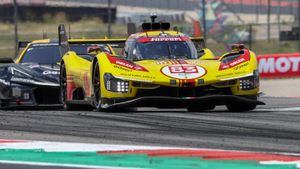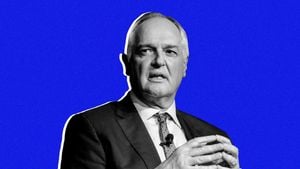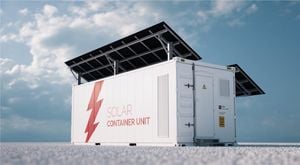French political analyst Pierre Lellouche has voiced significant critiques of the current European leadership amid the continuing turmoil from the Ukraine war, emphasizing the need for action rather than mere discussion. Speaking on CNEWS, Lellouche remarked, "Emmanuel Macron has presented himself as the European leader but has merely ratified what Donald Trump has proposed." This statement came during Lellouche's commentary on Macron's recent meeting with Trump, which sought to address progress on the Ukraine conflict.
According to Lellouche, Europe finds itself at a crossroads with choices being made without its influence, warning, "Europe is at the foot of the wall, history is moving forward without us." This sentiment captures the urgency he believes is necessary as European nations navigate the complex geopolitical landscapes shaped by Russian aggression and American foreign policy.
Reflecting on the discussions taking place, Lellouche stated, "This war could have been avoided," lamenting the lack of effective diplomatic engagement prior to the outbreak of hostilities. He asserts, "Ukraine cannot win this war," insisting instead on the parallel negotiations between the United States and Russia under Trump's administration, which aim to facilitate what he describes as "durable peace." This perspective emphasizes Lellouche's contention about the necessity of reevaluated strategies for European and Ukrainian leaders.
Macron's visit to Washington was intended to strengthen ties with the U.S. and consolidate efforts toward ending the conflict but was criticized by Lellouche as largely reactive to American proposals. He noted, "He has only acquiesced to what the Americans are proposing," pointing to the broader issue of Europe’s diminishing agency and influence on the global stage.
The French president's comments on the possibility of achieving ceasefire arrangements also drew Lellouche's scrutiny. Macron suggested there could be developments in peace talks "in the coming weeks," but Lellouche remains skeptical about the prospects of such outcomes, especially with the prevailing military realities on the ground.
Discussion of Europe’s role continues as various leaders address the pressing need for unified responses to diplomatic challenges. Lellouche's analysis calls for more proactive involvement from European leaders as well as recognition of the historical significance of the choices they face. He believes the missteps and lack of foresight have led to the current state of affairs, where Ukraine remains embattled.
Lellouche's insights provoke thought about the nature of leadership and responsibility, particularly as Europe tries to reconcile its position between American strategies and Russia's ambitions. His repeated calls for reacting effectively rather than passively are grounded in the belief of avoiding historical pitfalls caused by indecisiveness.
The discourse surrounding these topics aims to spark meaningful dialogue about the future of NATO, European solidarity, and the pressing questions of peace versus continued conflict. Facing persistent uncertainties, leaders, according to Lellouche, must act decisively to avoid being sidelined or overly reliant on external powers.
His reflections resonate with the public as Europe grapples with the consequences of the war and seeks to forge paths forward in both security and diplomacy. The continuous struggle for Ukraine, the impact of global politics, and the intricacies of French political discourse intersect uniquely at this pivotal juncture.
All eyes are now turning to the upcoming discussions and their potential to shape both immediate and long-term strategies concerning the Ukraine conflict.



